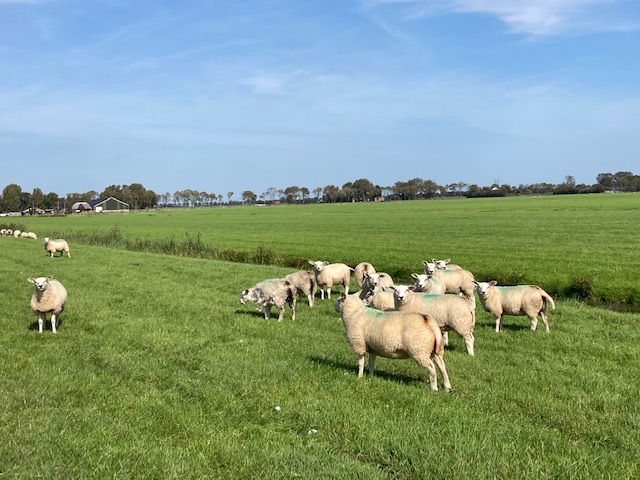Bluetongue virus spreads to over 300 farms, 400 animals are dead

The bluetongue virus first identified on four Dutch sheep farms earlier this month has now been identified on 319 farms nationwide, according to data collected by food and product safety board NVWA.
The first four cases were in Noord-Holland and Utrecht and the virus is so far largely confined to the central part of the country, the NVWA said. It has also been identified in cattle.
It is the first time since 2009 that the disease, which does not pose a threat to humans, has been found in the Netherlands.
Bluetongue is spread by midges, not by direct contact between animals, and farmers have been told to use insect repellents to stop the disease from spreading.
Contrary to bird flu, foot and mouth disease or mad cow disease, no animals will have to be culled as a result of the disease, which is characterised by high fever, swelling of the lips and red mucous membranes in the mouth and tongue.
Nevertheless, at least 400 sheep have already died because of the disease and more reports have been coming in of cattle with serious symptoms, Jeannette van de Ven, from farming organisation LTO, told broadcaster NOS.
“Our members are beginning to worry and that is understandable, given the way the disease is progressing,” she said.
The Netherlands has now lost its EU disease-free status, meaning sheep will have to be vaccinated before they can be exported, caretaker agriculture minister Piet Adema said in a briefing to MPs when the first cases were identified.
The country will have to be clear of bluetongue for three years before it can be declared disease free again.
Thank you for donating to DutchNews.nl.
We could not provide the Dutch News service, and keep it free of charge, without the generous support of our readers. Your donations allow us to report on issues you tell us matter, and provide you with a summary of the most important Dutch news each day.
Make a donation